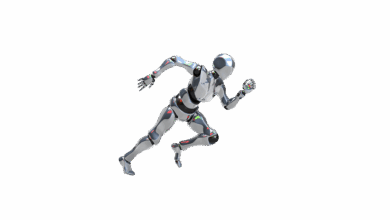The New Sound of Collaboration: Spotify and Major Labels Dive into AI

The music world has always been a fascinating blend of art and innovation. From vinyl to cassettes, CDs to digital downloads, and now, the ubiquitous streaming service, technology consistently reshapes how we create, consume, and connect with sound. But what happens when technology doesn’t just deliver music, but actively helps *make* it? This question is at the forefront of the industry’s mind as we learn that Spotify, the undisputed giant of music streaming, is reportedly diving headfirst into the realm of AI music tools – and they’re bringing the major record labels along for the ride.
It’s a development that feels both inevitable and paradigm-shifting. For years, AI has been dabbling in composition, mastering, and even generating entire tracks. Now, with Spotify’s immense reach and the backing of the very institutions that govern much of the recorded music world, the speculative future of AI in music is starting to feel very, very real. But what exactly does this mean for the artists, the listeners, and the very essence of what makes a song, well, a song?
The New Sound of Collaboration: Spotify and Major Labels Dive into AI
News of Spotify’s venture into AI music tools isn’t entirely out of the blue. The tech world has been buzzing with generative AI for a while now, and music, as a data-rich and pattern-driven art form, was always going to be a prime candidate for its application. What makes this particular announcement significant, however, is the involvement of major record labels. This isn’t a rogue tech company experimenting in a vacuum; this is a coordinated effort by the established titans of the music industry.
When we talk about “AI music tools,” the scope can be vast. It’s not just about an AI writing the next chart-topper (though that’s certainly a part of the conversation). It could encompass a range of functionalities:
- AI-assisted composition: Tools that help artists generate melodies, harmonies, or rhythms, acting as a creative sparring partner.
- Personalized soundscapes: Imagine an AI dynamically generating background music perfectly tailored to your mood, activity, or even your heart rate.
- Enhanced discovery: Beyond current recommendation algorithms, AI could potentially generate entirely new tracks or remixes based on your listening habits and preferences.
- Production and mastering aids: AI can analyze and suggest optimal mixing levels, apply mastering techniques, or even separate instrumental stems from a finished track, saving artists and producers countless hours.
The key here, and a point Spotify has been quick to emphasize, is the commitment to creating “responsible” AI products that “respect artists’ rights.” This isn’t just lip service; it’s a critical foundation if this venture is to succeed without alienating the very creators who fuel the platform. The ethical considerations surrounding AI and art are complex, and the industry is well aware of the potential backlash if artists feel their work is being exploited or devalued.
Navigating the Ethical Maze: Protecting Artists in an AI-Driven World
The intersection of AI and artistic creation presents a profound challenge: how do we leverage technology’s power without diminishing human creativity or unfairly compensating the original creators? This is the ethical tightrope Spotify and the major labels are attempting to walk. The phrase “respect artists’ rights” isn’t just about copyright in the traditional sense; it delves into attribution, fair use of existing material for training data, and establishing new models for remuneration.
The Training Data Dilemma
One of the biggest concerns for artists revolves around how AI models are trained. Many generative AI tools learn by analyzing vast amounts of existing music. If an AI is trained on an artist’s entire catalog without their explicit consent or fair compensation, it raises significant questions about intellectual property. Spotify, with its direct relationships with labels and artists, is in a unique position to negotiate these terms proactively, ideally establishing precedents for transparent and equitable data usage.
AI as Co-Pilot, Not Replacement
The “responsible AI” narrative often frames these tools as enhancements, not replacements. Think of it less as an AI writing a symphony from scratch and more as an AI suggesting a chord progression to a songwriter experiencing writer’s block, or a mastering engineer using AI to optimize their final mix. The human touch, the intent, the raw emotion – these are still seen as irreplaceable. The challenge lies in ensuring that the tools remain in service of human creativity, rather than becoming its master.
For example, existing AI tools can already do things like separate vocals from instrumental tracks or generate variations on a drum beat. Imagine these capabilities integrated seamlessly into a creative suite, allowing artists to experiment more freely and iterate faster. The potential for efficiency and expanded creative horizons is immense, but only if the framework prioritizes the artist’s agency and ownership over the output.
What This Means for Listeners, Artists, and the Future of Music
This bold step by Spotify and its major label partners promises to ripple through every corner of the music ecosystem. The impacts will be felt by creators, consumers, and the industry at large, reshaping how we interact with sound.
For Listeners: A Hyper-Personalized and Dynamic Experience
For us, the listeners, the immediate future likely means an even deeper dive into personalization. Imagine Spotify not just recommending tracks, but subtly altering the tempo or instrumentation of a song to match your activity, or generating unique, algorithmically-crafted background scores for your workouts or meditation sessions. We could see the emergence of “generative playlists” that evolve in real-time, or interactive music experiences where you, as the listener, have a hand in shaping the soundscape. The line between consuming static content and engaging with dynamic audio could blur significantly.
For Artists: New Creative Avenues, New Ethical Headaches
Artists, from indie bedroom producers to established global superstars, will face a mixed bag. On one hand, these AI tools could democratize creation even further, offering powerful production and compositional aids that were once the exclusive domain of expensive studios or highly specialized engineers. It could empower artists to break through creative blocks, experiment with new genres, and bring their visions to life with unprecedented speed.
On the other hand, the ethical headaches will persist. Questions of fair compensation, deepfakes of artists’ voices, and the potential for market saturation with algorithmically generated content will require careful navigation. Artists will need clear guidelines, robust legal protections, and a seat at the table to ensure these tools serve their interests, not just the platforms’. The onus will be on Spotify and labels to prove their commitment to “responsible AI” through tangible, enforceable policies.
For the Industry: Reshaping Production, Distribution, and IP
The music industry itself will undergo significant transformation. Production workflows could become highly augmented by AI, reducing costs and accelerating timelines. Distribution might see new models for licensing AI-generated content or components. Most critically, the concept of intellectual property will need to evolve. How do you copyright a track where an AI contributed a significant portion? What’s the economic model when an AI creates variations of existing works? These are questions that will redefine legal frameworks and business practices for decades to come.
Ultimately, this move isn’t just about technology; it’s about the future of creativity itself. It’s a testament to the enduring human desire to make and experience music, even as the tools we use become increasingly sophisticated. The success of Spotify’s AI venture will hinge on its ability to foster innovation while simultaneously safeguarding the artistry and livelihoods of the human creators who remain at the heart of music.
Conclusion
Spotify’s foray into AI music tools alongside major record labels marks a pivotal moment. It’s a clear signal that the future of music is inextricably linked with artificial intelligence. While the promise of hyper-personalized experiences, unprecedented creative tools, and efficient production workflows is exciting, the journey ahead is complex, fraught with ethical considerations around artist rights, compensation, and the very definition of originality. The success of this ambitious endeavor will depend on a delicate balance – harnessing the power of AI to amplify human creativity, rather than diminish it, and ensuring that the revolutionary advancements benefit all stakeholders, especially the artists who pour their souls into the sounds we love. The stage is set for a new era of musical evolution; let’s hope it’s a harmonious one.





